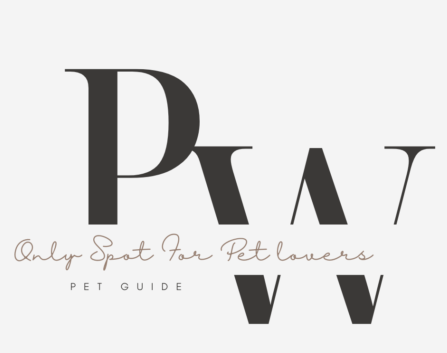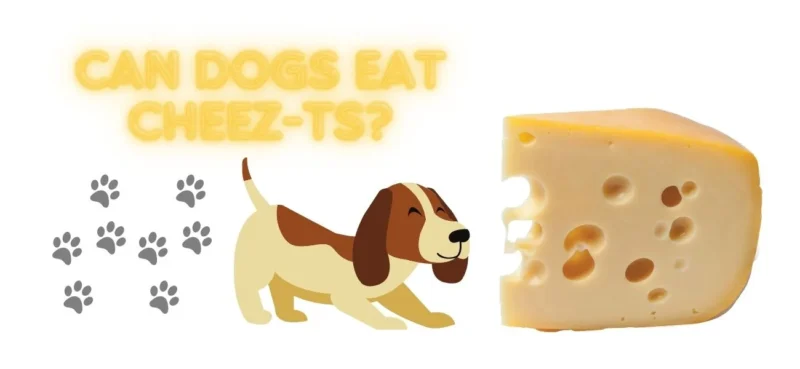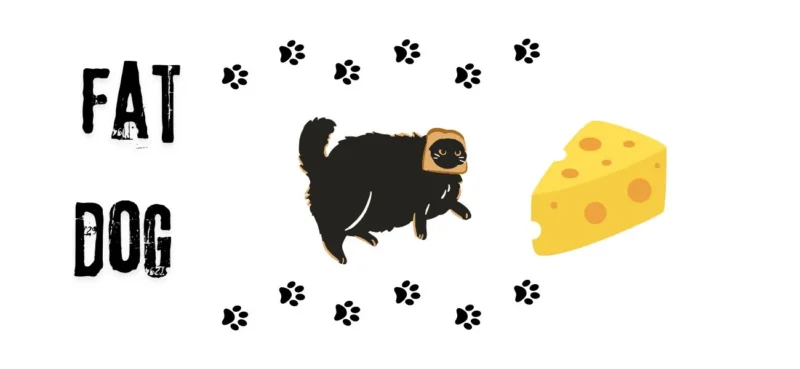As a pet owner, I’ve often found myself wondering if my furry friends can safely eat Cheez-Its. These crispy, cheesy crackers are a favorite snack among humans, and it can be tempting to share them with our dogs. However, it’s important to prioritize their well-being. While it’s easy to get lost in the moment, indulging our dogs with these delicious treats might not be the best choice for their overall health.
Instead, we should focus on offering appropriate and nutritious treats to avoid any potential issues that could arise from an unhealthy diet. When I catch my dog looking at me with those soulful puppy eyes, I feel the weight of wanting to share my snacks, yet I remind myself that it’s impossible to let them indulge in everything I enjoy. It’s crucial to keep their needs in mind, ensuring they are happy and healthy while we relish our snacks.
CAN DOGS EAT CHEEZ-ITS?
When it comes to whether dogs can eat Cheez-Its, the answer isn’t straightforward. In a short summary, while your canine buddy might enjoy scarfing down a couple of these cheesy crackers on occasion, it’s not the best idea. These snacks can adversely affect your dog’s health because they lack nutritional value. Cheez-Its are also high in sodium, which is not great for a dog’s diet. If your dog manages to get their paws on a lot of Cheez-Its, it might be wise to consult a veterinarian for advice on what to do next.
It’s important to know that Cheez-Its should not be a regular part of their diet. Technically, your dog can eat one or two, but those crunchy bites can be filled with cheesy ingredients that fall short in delivering the sustenance your pet needs. Dogs are generally more inclined toward a carnivorous diet that includes rich, high-quality animal proteins and fats. So, while Cheez-Its can spark their taste buds, they won’t check the necessary boxes for a balanced diet.
WHAT’S INSIDE THESE CHEEZY BITES?
A regular serving of Cheez-Its, which is about 27 crackers, contains around 150 calories. Here’s a quick look at the nutritional information:
| Nutritional Information | Amount per Serving (27 Crackers) |
|---|---|
| Calories | 150 |
| Total Fat | 8 grams |
| Protein | 3 grams |
| Carbohydrates | 17 grams |
I remember the first time I looked closely at the ingredients; I thought I was just munching on a tasty snack. It comprises following ingredients:
- Enriched Flour (Mixture of Wheat, Niacin, Iron, Vitamins b1, b2 and Folic Acid)
- Vegetable Oil (Blend of Palm Oil, Canola Oil, High Oleic Soybean Oil)
- TBHQ (Added for freshness)
- Cheese (Main ingredient)
- It is made of:
-
-
- Skim Milk
- Whey Protein
- Salt
- Cheese Cultures
- Annatto Extract (for color)
-
What really fascinates me is the variety within the Cheez-It family. Beyond the Original recipe, there are so many flavors to choose from—like hot, spicy, buffalo wing, and extra cheesy. However, I learned the hard way that not all these flavors are safe for my dog. Some contain ingredients like onion and garlic powders, which can be bad news for our furry friends.
DO CHEEZ ITS SATISFY DOG’S NUTRITIONAL NEEDS?
Dogs, like humans, need a balanced diet to stay healthy. It’s essential to provide them with a variety of nutrients so they can thrive and support their bodily functions. Here are some important nutritional needs for dogs:
- Protein for muscle development and maintenance
- Fats for energy and healthy skin
- Vitamins and minerals to support various bodily functions
- Fiber from fruits and vegetables for digestive health
- Water to stay hydrated
Now, let’s talk about whether Cheez-Its can meet these nutritional needs. While Cheez-Its are not toxic to dogs, they do not fulfill the essential nutritional requirements that dogs need. These snacks are high in sodium, calories, and fats, but they lack the vital proteins and nutrients necessary for a dog’s health. Feeding your dog Cheez-Its can lead to an imbalance in their diet, which may cause health issues over time. So, while a few Cheez-Its might be tempting to share, they won’t support your dog’s health like a proper dog food would.
Incorporating lean sources of meats, such as chicken cooked without seasoning, as well as beef and deboned fish, can be highly beneficial for their overall health and muscle development rather than relying on snacks like Cheez-Its or turkey necks, which are great sources of calcium and protein.
WHAT HEALTH DANGERS CAN CHEEZ-ITS POSE TO DOGS?
The health risks triggered by Cheez-Its totally depend on your dog’s age, size, breed, regular diet, and the amount of Cheez-Its they consume. Sharing my personal experience, my dog once managed to snag two cheesy bites off the kitchen counter, and I was initially worried about how he might react. Fortunately, nothing happened, and he seemed perfectly fine afterward. However, following health issues are most commonly faced:
EXCESSIVE SODIUM IN CHEEZ ITS
When considering whether dogs can eat Cheez-Its, it is crucial to look at the ingredients, particularly sodium. Sodium is a mineral that plays a key role in regulating fluids in the body. While humans can manage a higher sodium intake, dogs are more sensitive to it. Consuming too many Cheez-Its can lead to harmful effects for dogs, including excessive thirst and frequent urination. Here are some key points to keep in mind:
- Sodium Sensitivity: Dogs are more sensitive to sodium than humans, making it important to monitor their intake.
- Health Risks: An excessive amount of sodium can negatively impact your dog’s health.
- Dehydration: High sodium levels can lead to dehydration, prompting your dog to drink more water.
- Electrolyte Imbalance: Too much sodium can disrupt the balance of electrolytes in your dog’s system.
- Symptoms of Overconsumption: Signs of sodium excess include lethargy, weakness, and severe issues like hypertension.
- Heart and Kidney Health: High sodium intake poses additional risks to your dog’s heart and kidney health.
While a small amount of Cheez-Its might not be harmful, it’s best to approach their consumption with caution.
PANCREATITIS
When it comes to dogs, a high-fat diet can be dangerous. Cheez-Its have a high-fat content that can potentially trigger pancreatitis, a condition where the pancreas becomes inflamed. This happens because the digestive enzymes start attacking the pancreas itself. Dogs can experience severe pain, vomiting, and even diarrhea if they consume too much fat. It’s crucial for every dog owner to be aware of how their furry friends can be particularly sensitive to such treats.
Recognizing the symptoms of pancreatitis is vital for prompt treatment. It’s not just about having abdominal pain; sometimes the signs are subtle and can be mistaken for other ailments.
- Dogs might show a hunched posture, indicating they’re uncomfortable.
- They may have a noticeable reduction in appetite.
My friend’s dog recently experienced this and refused to eat for a day! Other common symptoms include
- Lethargy
- loose, watery stools
- dehydration
If you notice signs like dry gums, sunken eyes, or an increased heart rate, it’s essential to seek veterinary care immediately.
EXCESS CALORIES IN CHEEZ ITS
When considering whether to feed your dog Cheez-Its, it’s important to understand the calories they contain. Cheez-Its are calorie-dense snacks that, while enjoyable, should not be a regular part of your dog’s diet. These high-calorie foods can easily lead to weight gain if consumed too often, especially if your dog does not get adequate exercise to burn off the extra calories. Even though sugar-free Jell-O may seem like a lower-calorie alternative, it poses its own risks due to artificial sweeteners. Here are some key points to keep in mind:
- Weight Gain: Frequent feeding of Cheez-Its can lead to excessive calorie intake and weight gain.
- Obesity Risk: A diet that includes too many calorie-rich treats increases the risk of obesity.
- Health Problems: Prolonged intake of high-calorie snacks can contribute to health issues like diabetes and joint problems.
- Cumulative Effects: While Cheez-Its are not immediately toxic, their cumulative effects can negatively impact your dog’s health.
- Balanced Diet: It’s crucial to ensure your dog has a balanced diet that does not rely too heavily on calorie-dense treats like Cheez-Its.
In summary, while giving your dog an occasional Cheez-It may not cause harm, moderation is key to maintaining their overall health.
ALTERNATIVES TO CHEEZ-TS FOR DOGS
If you’re looking for healthier snack options for your dog, consider these alternatives to Cheez-Its. Packed with essential nutrients and low in calories, these treats not only satisfy your dog’s taste buds but also contribute to their overall health and well-being:
- Carrots: Rich in vitamins and low in calories, carrots help improve your dog’s eyesight and support dental health.
- Green Beans: High in fiber and low in calories, green beans can aid digestion and help your dog feel full without gaining weight.
- Sweet Potatoes: Packed with vitamins A and C, sweet potatoes are a nutritious treat that promotes healthy skin and coat.
- Pumpkin: A great source of fiber, pumpkin can help regulate your dog’s digestive system and prevent constipation.
- Peanut Butter: High in protein and healthy fats, peanut butter is a tasty treat that can provide energy and promote healthy skin.
- Blueberries: Full of antioxidants, blueberries can support your dog’s immune system and improve brain health.
- Apples: Low in calories and high in fiber, apples help freshen breath and provide essential vitamins.
- Plain Yogurt: A good source of calcium and probiotics, plain yogurt can support your dog’s digestive health and strengthen bones.
- Chicken Jerky: High in protein, chicken jerky is a chewy treat that can help build strong muscles and keep your dog active.
- Oatmeal: A healthy source of carbohydrates and fiber, oatmeal can provide long-lasting energy and promote digestive health.
COULD CHEEZ-ITS TRIGGER DANGEROUS ALLERGIES IN YOUR DOG?
When considering if dogs can eat Cheez-Its, it’s essential to understand the potential allergies these snacks can cause. Cheez-Its are popular snacks that contain dairy and wheat, both of which are common allergens for many canines. If a dog has specific food intolerances, eating these snacks can pose a significant risk to their health. Here are some key points regarding the allergies posed by Cheez-Its:

- Dairy Allergy: Dairy can lead to adverse reactions in dogs, causing symptoms like itchy skin, ear infections, and gastrointestinal issues such as diarrhea or vomiting.
- Dairy Sensitivity: Since Cheez-Its are cheese-flavored, they inherently contain dairy, making them unsuitable for dogs with this sensitivity.
- Wheat Allergy: Wheat is another common allergen that can affect dogs, leading to signs such as chronic ear infections, excessive scratching, and hot spots on the skin.
- Wheat Content: Since Cheez-Its are made with wheat, they are not safe for dogs that are prone to these allergies.
- Corn Allergy: Some dogs may also be allergic to corn, which is sometimes used as an ingredient in snacks like Cheez-Its. Symptoms can include itching, digestive upset, and skin irritation.
- Soy Allergy: Although not a primary ingredient in Cheez-Its, some dogs can react to soy, which is present in many processed snacks. This can cause symptoms like hives, vomiting, or diarrhea.
Understanding these allergies is crucial to keeping your furry friend safe and happy.
WHAT TO DO IF MY DOG HAS EATEN CHEEZ ITS?
If your dog, has eaten Cheez-Its, it’s natural to feel concerned about their well-being. After consuming such snacks, dogs may experience diarrhea and vomiting, especially if they aren’t accustomed to these types of foods.
Keep a close eye on your dog for at least 15 minutes to check for any signs of discomfort. If they continue to be eating fine, drinking fine, and urinating fine, that’s a positive indication. However, if your dog starts showing symptoms of GI distress or other worrying signs, it’s crucial to consult an expert right away.
A licensed veterinarian can provide advice tailored to your dog’s needs. They may suggest keeping an eye on your dog for a couple of days, as symptoms can often pass. In the case of more severe reactions, like excessive vomiting or diarrhea, the veterinarian may recommend medications such as Pepcid or Pepto Bismol. These treatments can help soothe your dog’s stomach and restore balance.
HOWEVER, IF YOU THINK SO THE CONDITION IS NOT THAT BAD, YOU CAN GO ON WITH THE FOLLOWING TREATMENT:
TREATMENT
Start by putting them on a bland diet for a day or two to allow their intestinal tract to recover. Here are some steps to follow:
- Feed simple foods like plain boiled rice and chicken to ease their digestive system.
- Ensure your dog has access to water at all times; if they aren’t drinking, offer small amounts with a dropper or syringe.
- After 24 hours, begin giving them four or five small light meals throughout the day to help gradually reintroduce food.
- Consider adding live yogurt to their diet, as it contains good bacteria that can help restore gut balance. For small dogs, give a teaspoon, and for larger dogs, provide up to two tablespoons, twice a day.
- If your dog’s symptoms do not improve within 24-48 hours, or if their condition worsens, consult a local vet for further assistance. Always be vigilant and ready to seek medical attention if you notice any significant changes in their health.
FINAL THOUGHTS
While Cheez-Its might seem like a tempting snack to share with your furry friend, it’s essential to prioritize their health and well-being. These crackers offer little nutritional value and can pose several health risks, especially if consumed in excess. Instead, opt for healthier treats that provide essential nutrients and promote your dog’s overall health. Always remember, moderation is key when it comes to treating our beloved pets.
To know more about dog health, you can buy books from best-book-shop.
FREQUENTLY ASKED QUESTIONS






1 thought on “Danger Ahead: Can Dogs Eat Cheez-Its Safely?”